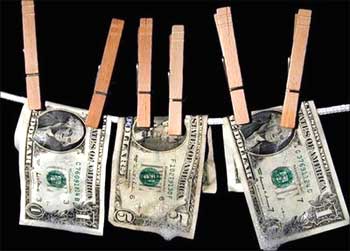 | « Back to article | Print this article |
Black money: Stung govt wants complete recall of SC order
The Centre on Friday approached the Supreme Court seeking review and recall of its order for setting up a Special Investigation Team comprising its retired judges to take over the probe of all black money cases, including that of Pune stud farm owner Hassan Ali Khan.
The government has sought a review as well as complete recall of the order in which it has also been pulled up for the 'laggardly pace' in investigations into the issue of black money stashed abroad.
Sources said the decision to avail the remedy of recalling the order was taken as it would give the Centre a chance to advance its arguments in an open court. The review petitions are considered in chamber without the presence of even the counsel.
Click NEXT to read on . . .
Black money: Stung govt wants complete recall of SC order
They said a separate application for recalling the July 4 order has been filed in which the Centre has contended that a bench of Justices B Sudershan Reddy (since retired) and S S Nijjar had passed the directions without 'completely' hearing its stand.
The Centre has submitted that the arguments of then Solicitor General Gopal Subramanium has not been considered completely by the Bench which ignored the steps taken for probing and monitoring the investigation into the issue of black money.
Sources said the decision to move the apex court against the order was taken after a closed-door meeting in which top officials of Finance and Home Ministries discussed the content of the order along with top law officers including Attorney General G E Vahanvati and other Additional Solicitor Generals.
Click NEXT to read on . . .
Black money: Stung govt wants complete recall of SC order
The government in its application raised objections to the apex court's criticism in the first 20 paragraphs of the judgement passed on July 4 while appointing former judges -- Justices B P Jeevan Reddy and M B Shah -- as chairman and vice-chairman of SIT.
It said the first 20 paragraphs have been written by the bench without any arguments being advanced by Gopal Subramaniam, who has since resigned.
The bench had in its order said monies generated and stashed away reveal the degree of 'softness of the State'.
Click NEXT to read on . . .
Black money: Stung govt wants complete recall of SC order
Listing worries arising out of the unaccounted monies stashed in foreign banks, the bench had said "the quantum of such monies may be rough indicators of the weakness of the State, in terms of both crime prevention, and also of tax collection".
The apex court had observed that the unaccounted money going abroad is a reflection of the compromise of the government's ability to manage the affairs of the state according to constitutional perspective.
"Unaccounted monies, especially large sums held by nationals and entities with a legal presence in the nation, in banks abroad, especially in tax havens or in jurisdictions with a known history of silence about sources of monies, clearly indicate a compromise of the ability of the State to manage its affairs in consonance with what is required from a constitutional perspective," the court had said.
Click NEXT to read on . . .
Black money: Stung govt wants complete recall of SC order
It had said the failure of the government to control the phenomenon of black money stashed in foreign banks is an indication of weakness and softness of the state in managing its affairs.
"Large quanta of monies stashed abroad, would also indicate a substantial weakness in the capacity of the State in collection of taxes on incomes generated by individuals and other legal entities within the country," the court had said.
It had said "a substantial degree of incapacity, in the above respect, would be an indication of the degree of failure of the State".




